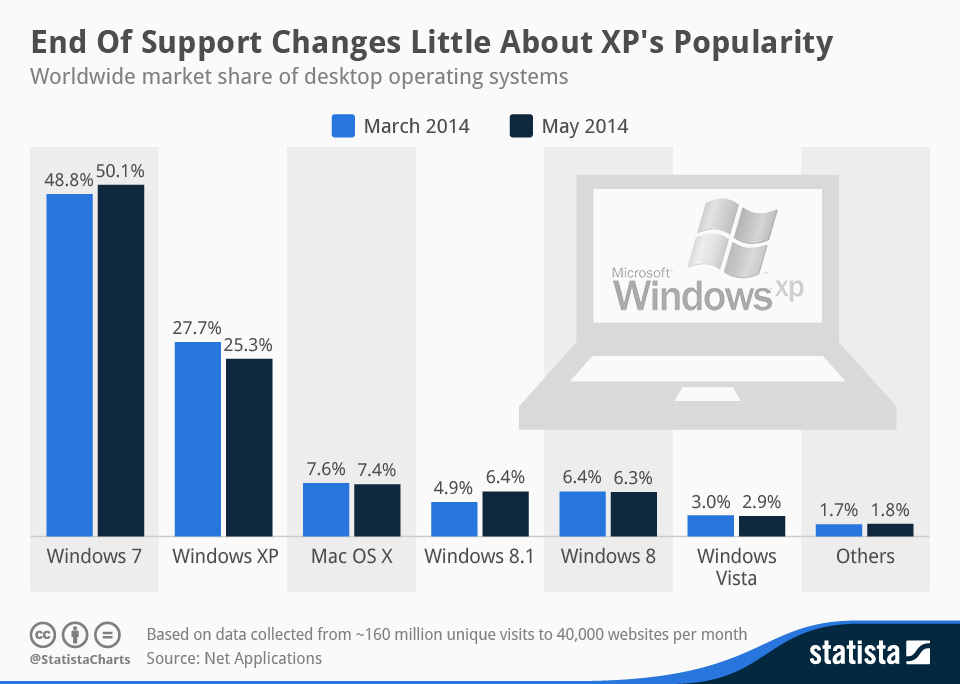Users of Windows XP are not upgrading to safer versions of the operating system after the April 8 deadline when Microsoft stopped supporting the aging OS – with a drop of just 2.4% in market share worldwide, with the unsupported OS still the world's second most popular.
According to data from Net Applications and presented as a chart from Statista, Windows XP still accounted for 25.3% of all PC desktop operating systems worldwide, second only to Windows 7 at 50.1% and well ahead of Windows 8.1 at 6.4% and Windows 8 at 6.3%.
Statista’s Felix Richter says, “In May – the first full month after the end of support – XP was still the second most popular desktop operating system in the world, trailing only Windows 7. Compared to March, Windows XP’s market share only dropped by 2.4 points, indicating that many users are knowingly or unknowingly taking the risk of using an operating system without recent security updates.”
Business Insider points out that XP may be a victim of its own success, saying, “Windows XP was released for sale in 2001 and was probably Microsoft's most popular, critically acclaimed operating system. It was simple to use and got everything right. Microsoft continued to sell XP until about 2010. The company sold more than 400 million copies of XP in its first five years.”
BetaNews points out that the slight fall in XP use, and rise in use of Windows 8.1 and 8 - whose security features are discussed here by ESET’s Distinguished Researcher Aryeh Goretsky in a We Live Security post and white paper - could mean that by the end of the year Windows 8 will overtake XP. The site speculates however, that XP use may in fact stabilize.
In a post entitled, Goodbye Windows XP, ESET’ Distinguished Researcher Aryeh Goretsky points out that users ARE still receiving some protection, “ While Microsoft may have ended its support of Windows XP that does not mean that other companies have as well. ESET realizes that not all of our own customers are able to upgrade to newer versions of Windows, and has committed to supporting Windows XP until at least April 30, 2017 (and possibly even beyond that, depending on how many of you are still on XP then).
Goretsky also offers a guide to using XP safely after its “end of life” (from Microsoft’s perspective at least), with five tips for users to stay safe while using the OS. Goretsky warns, however, “While these tips will help, your main goal should figuring out how to move away from Windows XP. If it is simply a matter of replacing a critical application, work out the cost and build that into your operating budget, likewise for computer upgrades or even replacement computers. That may be a capital expense, and an unwanted one in this economy, however, it is still better than going out of business because outdated computers failed or critical data was stolen.”





